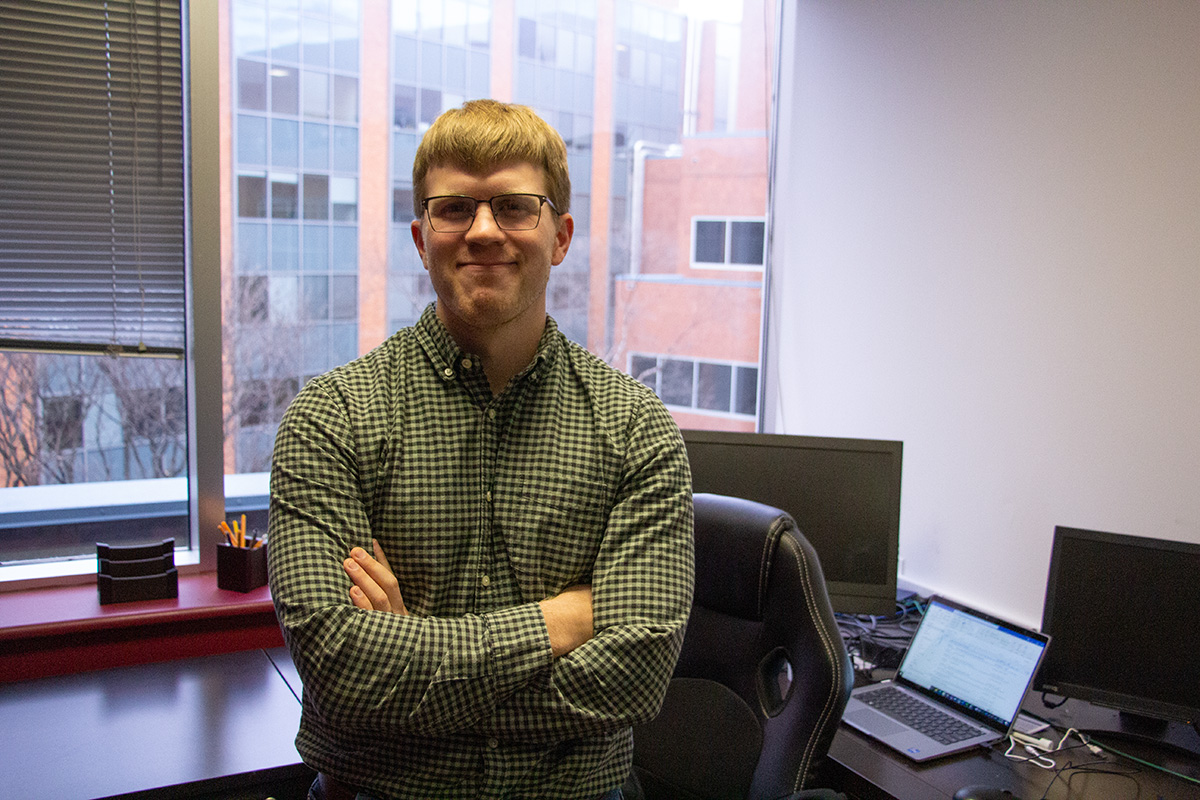
Every day, your immune system comes across tens of thousands of foreign
organisms. It’s up to the innate immune cells – a set of white blood cells
that act as the sentries of the immune system – to screen these organisms
to determine what’s dangerous, but perhaps more importantly, what can be
ignored.
“Generally, our innate immune cells have certain chemical cues that can
identify self from non-self, and when they see something that’s not
harmful, they can say ‘don’t attack this.’ —otherwise we’d be fighting
everything,” explained
Peter Deak, PhD
, assistant professor of chemical and biological engineering at Drexel
Engineering. “But occasionally, they see something innocuous – like our own
cells – as dangerous, and attack.”
This malfunction is the basic definition of an autoimmune disease, and
Deak’s research could unlock a unique way to fight them.
“My work right now is specifically looking at multiple sclerosis, because
there’s solid evidence about how that works,” he said. “The innate immune
cells in the brain see proteins in nerve cells and think they’re
pathogenic, and they tell the body to attack them, which creates
inflammation, which in turn drives more immune response, creating more
inflammation, and it snowballs. So, if we can reconstruct the innate immune
cells to be more tolerant then we can cut that off from just sort of
spiraling out of control.”
Deak’s research recently received support from the Margaret Q. Landenberger
Research Foundation, a non-profit private organization which focuses its
support on promising early-stage medical researchers. If successful, his
research could lead to new therapeutics for autoimmune diseases that could
target the source of the problem, a vast improvement over current
treatments.
“The main problem in that the treatments that exist now are basically just
broad spectrum immunosuppressants, which work to an extent, but you have to
take them for the rest of your life, and because you’re suppressing
everything, you’re more at-risk for cancer, infection and almost every
other disease out there,” Deak explained. “If we can target the one protein
that causes the autoimmune response, we could potentially make a memory
response that’s tolerant, and that’s kind of the Holy Grail of autoimmune
treatment.”
Deak sees his research as a cross between engineering, chemistry and
immunology.
“I’m kind of wearing three hats,” he said. “I look at how these molecular
compounds interact with dendritic cells, which are our primary antigen
presenting cells, and I look for specific markers that signify whether they
will fight the compound or have a tolerant reaction. Then I have to figure
out the most effective way to deliver that compound to the body.”
The difficulty in this final step is that, in the past, therapeutics were
delivered with an immunosuppressant. This would create a short-term
tolerance, but the body didn’t learn and replicate the instructions to
remain tolerant, and if the immunosuppressants were stopped, so too was the
fix.
“What I found during my post-doc is that, if you combined an inhibitory
signal with an immunostimulant – something like you would normally put in
like a vaccine – that actually caused the dendritic cells to be tolerant,
but also to continue to replicate and actively present antigen,” he said.
“But now I'm really looking for a more sophisticated and simple solution,
because the first one I found was a little complex, requiring multiple
drugs to be delivered at different times, so it couldn’t be translated into
a realistic therapy.”
Deak’s research has been published in Cell Reports, Biomaterials and other peer-reviewed journals. He is currently building a team of graduate and undergraduate students to help him further his research.